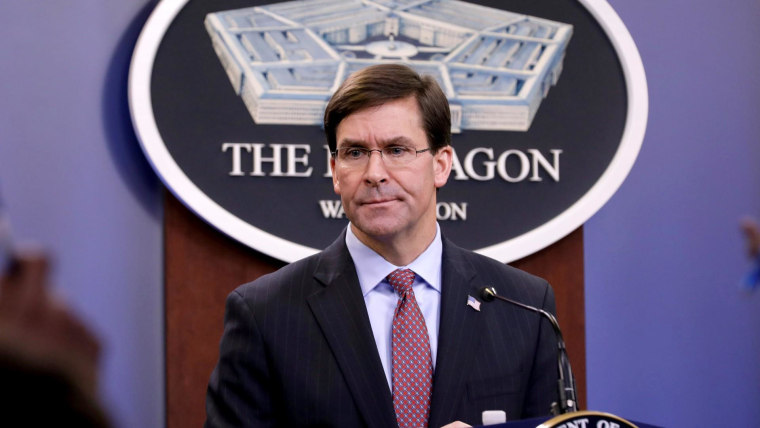It's been 10 days since Donald Trump authorized an airstrike in Iraq that killed Iranian Gen. Qassem Soleimani, which was launched in order to prevent an imminent attack. Well, maybe not imminent. But the president and his team certainly knew of a deadly attack Soleimani was planning.
Except, maybe "knew" is too strong a word, since the administration didn't know who, what, where, or when the general intended to strike. Except the opposite might also be true, since Trump said Soleimani was targeting an embassy. No, wait, not just any embassy, but the U.S. embassy in Baghdad.
Hold on, did Trump say the U.S. embassy in Baghdad? What he meant to say was that Soleimani might have also been targeting four different embassies. The Republican told Fox News on Friday, "I can reveal that I believe it would have been four embassies" the Quds Force general was plotting against.
And I can reveal that I believe that the president is making stuff up as he goes along -- and as a rule, those who repeatedly change their stories should probably expect some skepticism.
It reached the point yesterday that Trump's own Defense secretary appeared on CBS News' Face the Nation and put some distance between himself and the president's latest claim.
Esper said the president made no citation of "a specific piece of evidence," adding that Trump was just making clear what he believed to be the case."I didn't see one with regard to four embassies," Esper said of a specific piece of evidence leading to Trump's conclusion. "What I'm saying is I shared the president's view ... my expectation was they were going to go after our embassies."Speaking with CNN's "State of the Union," Esper said intelligence showed "there was an intent to target the U.S. embassy in Baghdad."
Or put another way, the "imminent attack" talking point from nine days ago has been discredited by the same administration that peddled it with enthusiasm. It's been replaced with "an intent" to attack.
Just as important, though, was the Pentagon chief's concession that he "didn't see" intelligence in line with Trump's obviously dubious claims.
It may be tempting to think the president received special information the Defense secretary did not, but Esper is one of a very small number of officials who receive the Presidential Daily Brief (PDB), which would've alerted him to intelligence if Iran was targeting four U.S. embassies.
But Esper saw no such intelligence -- not because the DOD chief was out of the loop on a dangerous military operation, but probably because the information doesn't exist outside of Trump's imagination.
Complicating matters, if Iranian forces were targeting U.S. embassies, officials would have received warnings and/or alerts to U.S. personnel. According to the Washington Post, there were no such warnings or alerts ahead of the Jan. 3 airstrike, further reinforcing concerns that the White House is peddling bogus claims.
Vice President Mike Pence told NBC News last week that the administration had "compelling" intelligence that justified the Soleimani airstrike, but the White House can't share it with anyone, including Congress. The more Team Trump shifts in the wind and comes up with fanciful new claims, the less sustainable Pence's position becomes.
